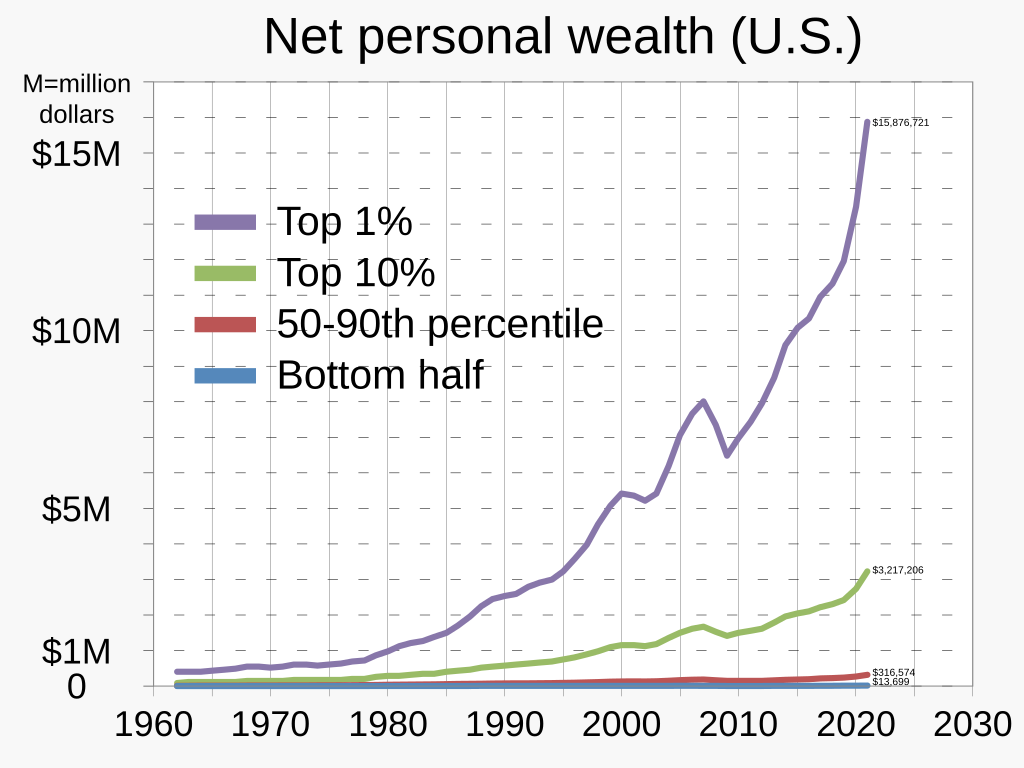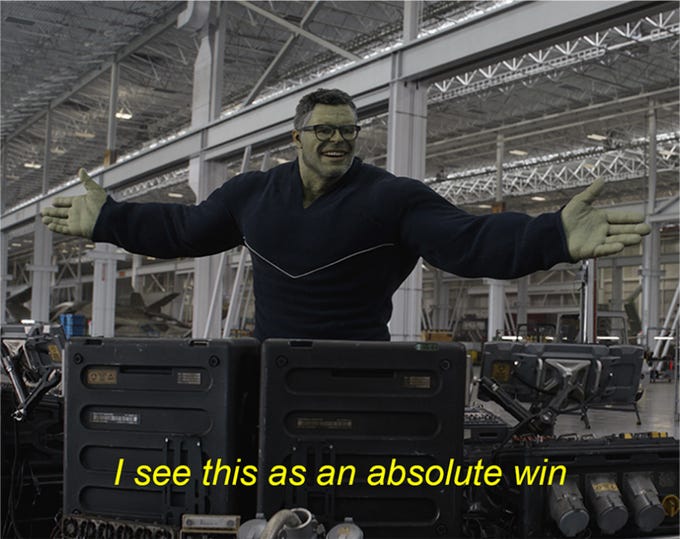You can watch the video for this post on:
The Weekly One Pager YouTube Channel
^^^Click link here to watch^^^
—
America is in a moment of doubt. Even before Donald Trump was re-elected, young people were disillusioned about the high cost of living, wealth inequality, and a system that feels rigged. Millions of people believe Luigi Mangione's violent murder of UnitedHealthcare’s CEO was “justified” rebellion against a system where corporations value profits over human life. To be clear, that’s not how I feel. But the fact is, support for Luigi is common. In a moment where nearly 50% of people believe the American Dream is dead, I think it’s reasonable to take a step back.
How did we get here?
Did Billionaires Break America?
A lot of people blame the billionaires for our current situation.
It is staggering to hear that America’s roughly 800 billionaires have more wealth than the bottom half of the country. Instinctively it feels unfair that so few people control so much. But is unfair concentration really proof of “theft”?
Here’s the argument: While global competition hollowed out the middle class, billionaires used their influence to shape a crooked system where they benefit from growth while normal people struggle.
The sheer scope of inequality does look kleptocratic. But just because inequality feels unfair, does that mean it’s actually the cause of our problems?
Let’s do a thought experiment:
Elon Musk is worth $426 billion. That number is wild, but it’s almost entirely from his ~20% stake in Tesla’s $1.3 trillion valuation. If Tesla’s share price drops by half, Elon’s net worth drops by half as well. The world’s richest man lost half his net worth and therefore… inequality went down! Yay!
But did anything get better for the rest of us? I don’t think so.
One Simple Hack to Destroy Inequality (You’re Not Gonna Like It)
Let’s expand our thought experiment:
Rich people tend to own more stock than average. Therefore, in a financial collapse that devastates the stock market, rich people are disproportionately affected. On an unrelated note, look at this graph showing wealth inequality in America, and let me know if you notice anything weird happening around 2007.

Following the Great Financial Crisis, markets crashed, and the 1% took a big hit. As a result…inequality went down! Of course, when we just focus on lowering inequality, we don’t see the horrific suffering hidden in the imperceptible wiggling of the other lines on this chart.
Still, let’s focus on the big picture. If your only goal was to bring down inequality, then the Great Financial Crisis is your biggest victory since World War 2. Congrats!
Let’s hope I’m not giving the anticapitalists any ideas. Luckily I don’t think there are too many of them subscribed to (what theoretically used to be) a Substack about venture capital. (No, we’re not addressing the pivot, unsubscribe if you’re not feeling me).

Personally I don’t think destruction in the name of equality is a great economic model. Now of course, I’m being hyperbolic. I don’t think any of this is what people have in mind when they talk about solving wealth inequality. I know we can increase fairness without calamity.
My point is that if you fixate on the comparative wealth of billionaires as your metric for economic health, it leads you to some weird places.
I don’t really care how the billionaires are doing. I care about the rest of us.
But If Billionaire’s Paid Their Fair Share, Everything Would be OK (Right?)
Bernie Sander famously wanted to “Tax the Billionayres!” The implication being that if only we could tax Warren Buffet and his ilk, America’s economy would be dynamic, fair, and inclusive.
It’s not that simple.
America’s billionaires have a combined wealth of around $6 trillion. That sounds like a lot of money for just 800 people. In fact, the US government’s annual budget is also around $6 trillion. But wait…that means that even if there was a bonafide “proletariat revolution” where we wealth tax every billionaire into poverty, all it would do is fund our government for a single year. That hardly solves America’s problems.
Some of you are saying, “Great! Fund the government for a year!” Or better yet, why don’t we…build schools! Alleviate poverty! Solve the climate crisis!
America is broken, you say, and if we liquidate the billionaires we can build a green progressive utopia! Except…it’s not enough money. Not even close.
During Covid, our government spent $4.5 trillion. We got Project Warp Speed, stimulus checks, small business grants, and unemployment benefits. That money achieved a lot. But however you look at it, that $4.5 trillion hardly solved poverty or saved the American dream. A measly $6 trillion from billionaire’s won’t fix everything either.
Where We Go From Here
Taxing billionaires is not the solution to America’s problems.
Sure, they probably should pay more in taxes. There’s also good arguments about the outsized power billionaires wield in a system that’s supposed to be democratic. To be 100% clear, I’m not saying I think inequality is good, or that billionaires shouldn’t pay their fair share.
But please, let’s not trick ourselves into thinking the existence of billionaires is all that’s wrong with our system, or that they’re “stealing” what should rightly belong to the rest of us. It simply isn’t true. The numbers don’t add up.
Our problem isn’t that billionaires have too much. It’s that the rest of us have too little. Even hard redistributing their $6.5 trillion to every American only puts an extra $20,000 in your bank account. Sure, that would be nice, but it’s hardly groundbreaking.
So if they didn’t steal it, where did billionaires get their money from? What are the big problems in America? And how can we fix them?
I was hoping to answer some of those questions and more, but these are complex topics. For this week, it looks like I’m out of space. I’m sure plenty of you disagree with me on this one, so let me know what you think. And if I surprised you? Send this to a friend. I want to keep digging into these issues. About what’s gone wrong, where we’re headed, and what we can do to fix it.
Stay tuned.
Until next time, this has been,
The Weekly One Pager
—
You can watch the video for this and future posts on:
The Weekly One Pager YouTube Channel
—



